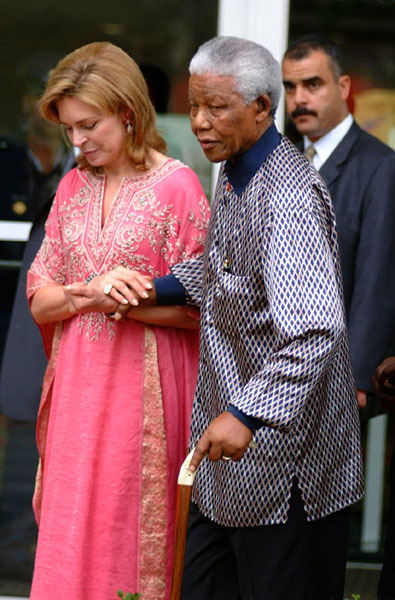Implementing the Key recommendations from the IUCN Vth World Parks Congress 2003
The world’s foremost leaders in protected areas met in Cape Town recently to discuss progress in implementing the key recommendations from the landmark 2003 IUCN World Parks Congress.

Photo: IUCN WPC
The meeting was opened by the South Africa Minister for the Environment and Tourism, Minister van Schalkwyk who highlighted the many challenges facing protected areas which require a radical shift to new and innovative approaches to protected areas, embraced in his concept of "Business Unusual". IUCN President Valli Moosa, in his opening address stressed the bond of humans with nature has a central role to play in life on earth and that we need to promote nature because it is the right thing to do. Nik Lopoukhine, WCPA Chair reflected on the challenge of promoting the values of protected areas as a contributors to solving major problems preocuppying the world, from climate change, human well being, and the provision of clean water and other key ecosystem services.
Participants at this "Durban+5" meeting noted considerable progress in the establishment and management of protected areas in many countries; in particular delegates commended progress in Madagascar, Micronesia, Mexico amongst many other countries. The vital role of the CBD Programme of Work on Protected Areas in stimulating action and progress was noted. However participants noted that many challenges remain and that climate change represents the major overarching issue facing protected areas in the 21st century.
Durban+5 also noted that 6,300 protected areas have now had their effectiveness assessed, in line with the IUCN Best Practice on Assessing the Management Effectiveness of Protected Areas and that this list of "certified" protected areas could form the basis for a "Green List" of protected areas. Durban+5 also noted the important initiatives in involving indigenous peoples and local communities in protected areas and, in particular, highlighted the growth in the recognition of Community Conserved Areas as a significant achievement; but it also noted that in most countries significant progress needed to made in the recognition of the rights of indigenous and local communities and the integration of the full range of governance types of protected areas in ways that are respectful of the knowledge and practices of indigenous and local communities.
Finally participants established the broad framework and process for the next IUCN World Parks Congress which it is anticipated will be held in 2014.
